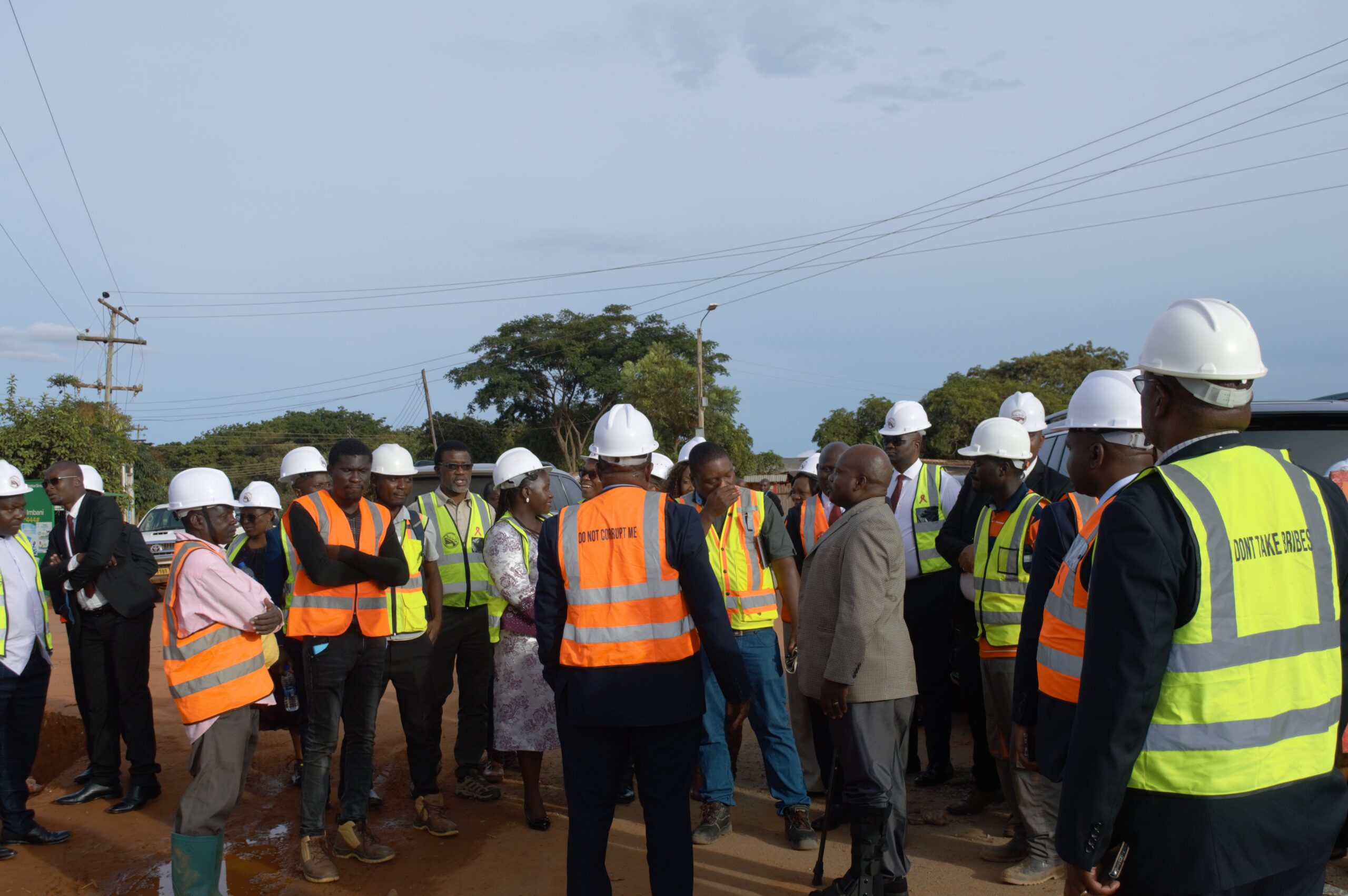The Board of the National Construction Industry Council (NCIC) has expressed confidence in the capacity of local construction industry players and is looking forward to them taking a bigger role in the implementation of various infrastructure development projects. The NCIC Board cited several capacity building interventions that the Council has been implementing for local players in additional to creating a conducive operating environment through, among other things, enabling legal and policy instruments. Recently put in place.
The Board made the sentiments recently when it toured some developmental projects in the Northern Region as part of its oversight function for the construction industry. Speaking at the construction site of Dunduzu, Nkhorongo to Choma Turn Off road project in Mzuzu, the Board Chairperson of NCIC, QS. Jeremiah Magaba expressed contentment that both the contractor and the consultant on the project are Malawian firms.
“As Council, we believe that we have sufficient local capacity to implement most of the infrastructure development needs of this country”, said Magaba. He cited enabling instruments that the Council and Government have put in place including Joint Venture Regulations and Micro, Small and Medium Entrepreneurs (MSMEs Order of 2020). The former obliges foreign firms to subcontract at least thirty percent of the works to local contractors and enables local players to come together to take on large contracts which they would otherwise not fulfil requirements for in their individual capacities. The MSMEs’ order, on the other hand, obliges public procuring entities to ensure that at least thirty percent of all public procurement is allocated to local contractors and suppliers in the MSMEs category.
On his part, the contractor for the project, HEMA Construction expressed satisfaction with progress of the works and commended the client for bringing all stakeholders together at the inception of the project to ensure smooth implementation of the same. Citing the example of utility providers who already submitted their future developmental plans like water supply expansion for which provisions for service ducts have been planned, he indicated such advance planning and collaboration is important in avoiding future disruptions to already constructed infrastructure.
The Board indicated that it has taken upon itself to be visiting infrastructure development projects to get firsthand information on issues affecting the industry and more so those affecting local players.

